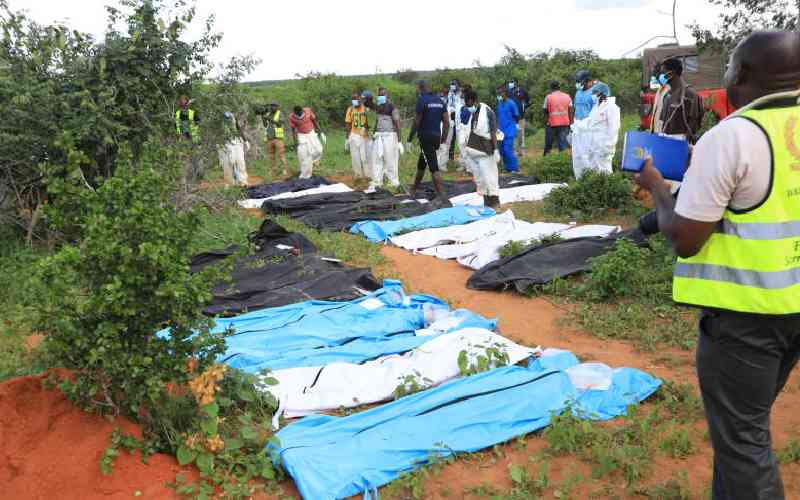×
The Standard e-Paper
Smart Minds Choose Us

Exhuming one body after another from the shallow graves in Malindi's Shakahola farm, he has mastered how to put aside his sentiments.
When he was called to help exhume the bodies from mass graves on April 15, Jack (not his real name) says he thought this was a one-day gig. "I could not turn down the job paying Sh1,000 a day," he said.







